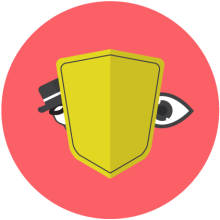
Everyone has the right to benefit from security, stability and resilience of the Internet. As a universal global public resource, the Internet should be a secure, stable, resilient, reliable and trustworthy network.
Different stakeholders should continue to cooperate in order to ensure effectiveness in addressing risks and threats to security and stability of the Internet.
Unlawful surveillance, monitoring and interception of users’ online communications by state or non-state actors fundamentally undermine the security and trustworthiness of the Internet.
Related resources
The report presents the findings of a study on what governments are doing to inhibit citizens’ access to ICT, for example content blocks, censorship, filtering, infrastructure control, law-making, court cases; how governments are using ICT activity and data to monitor citizens; and how government bodies and functionaries are using propaganda, impersonation, threats, cloning, and other tactics to shape online content in their favour.
Full country reports are available for ten countries: Burundi, Democratic Republic of Congo, Ethiopia, Kenya, Rwanda, Somalia, Tanzania, Uganda, Zambia and Zimbabwe. The research was conducted as part of CIPESA’s OpenNet Africa initiative (www.opennetafrica.org), which monitors and promotes internet freedom in Africa.
This UNESCO's report on "Human Rights and Encryption" written by Wolfgang Schulz and Joris van Hoboken, mentions the African Declaration on Internet Rights and Freedoms as being "A civil society initiative adopted “to help shape approaches to Internet policy-making and governance across the continent” .
Global Information Society Watch (GISWatch) looked at internet rights and democratisation, with a focus on freedom of expression and association online. This Special Edition, analyses more than 60 country and thematic reports in order to better reveal and build understanding of the broad range of practical actions and strategies that activists are developing.
Sandra Kambo is from Kenya where she works at AS&K Digital Communications, as a software and test engineer. She has practiced in this role for the past six years, while being in the ICT industry for over a decade npw. In her blog post she reflects on her experience at the African School on Internet Governance and how it can be applied to eveyday life situations from her country's perspective.
Human Rights groups and organisations responded to internet shutdown in Uganda during national elections through a joint letter to the African Union, Ugandan Government and other important parastatal institutions. The letter expressed the through the shutting down of the internet, human rights violations were committed.
The Association for Progressive Communications, APC, organized a Global Meeting on Gender, Sexuality and the Internet in Port Dickson, Malaysia, bringing together 50 participants from six continents comprising gender and women’s rights activists, LGBTQI (lesbian, gay, bisexual, trans* and intersex) movements, internet and technology rights organizations, and human rights advocates. The goal of the meeting was to bridge the gap between feminist movements and internet rights movements and look at intersections and strategic opportunities to work together as allies and partners. In thinking through these issues, the participants at the meeting developed a set of 15 feminist principles of the internet. These are designed to be an evolving document, and you can join the discussion and debate on the evolving set of feminist principles of the internet here: http://erotics.apc.org or email erotics@apc.org